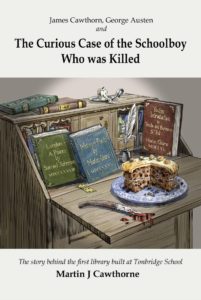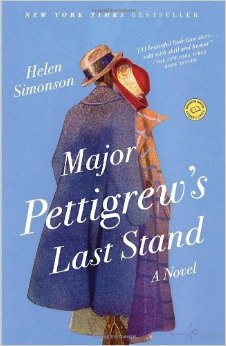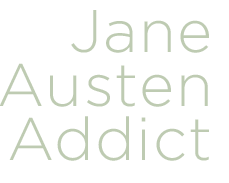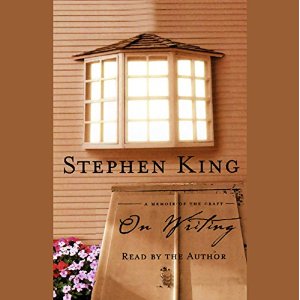 Check it out on eBookDaily and snag this great deal for the Kindle Edition. There are lots of other books on eBookDaily–so load up your Kindle library, and enjoy!
Check it out on eBookDaily and snag this great deal for the Kindle Edition. There are lots of other books on eBookDaily–so load up your Kindle library, and enjoy!
The Formative Years of George Austen, Jane’s father
A look at James Cawthorn, George Austen and “The Curious Case of the Schoolboy Who Was Killed” by Martin J. Cawthorne
by Matthew Coniam of The Jane Austen Centre
 Jane Austen’s father, George Austen has many connections to the city of Bath.
Jane Austen’s father, George Austen has many connections to the city of Bath.
On the 26th April 1764 he married, by special licence, Cassandra Leigh in St Swithin’s, Walcot. The Austen family were regular visitors to Bath and in December 1800, after 35 years ministering in Steventon, George Austen announced his retirement and moved to Bath, where he spent his final years. He died in the city on the 21st January 1805 and is buried at St Swithin’s Church where a memorial to him has been erected.
Jane Austen lived at home with her parents all her life and the Rev George Austen played a significant part in her life. Apart from a brief period at boarding school, Jane was largely educated at home; George also provided writing equipment for her to develop her literary talent. The Rev Austen features in Jane’s correspondence and as a result much is known about his adult life. Very little, however, has been written about George Austen’s early life, before he met and married Cassandra Leigh. It is known that he was orphaned at the age of six before going to school in his home town of Tonbridge, Kent, from where he won a scholarship to study at St John’s College, Oxford. However, very little has been written about these formative early years of his life – until now.
Finding Happiness, Austen Style: Read It Out, Act It Out, Dance It Out
Welcome to the first of a multi-part series of posts on how to lift yourself out of the blues, Austen style.
Perhaps it’s just that kind of day. Or year. Bottom line: you feel like crap. Friends, there is a cure to what ails you, and her name is Austen. Her magic comes in many forms, and this series of posts will illuminate, in no particular order, what you can do, with almost no effort, to feel light and bright and fabulous! 
Today we’re feeling the fairy dust from Northanger Abbey.

What? You’ve heard it’s frivolous? Not as polished as Austen’s later works? Balderdash. But wait—didn’t its original publisher accept it and then couldn’t be bothered to publish it? Just means that dude was an idiot. And anyhow, you’re too wise to waste time caring about what other people think. Because if you did care, you wouldn’t be dressing in Regency-era costumes (or wondering what it would be like to do it). You wouldn’t be going to (or imagining) fun things like the Jane Austen Festival in Bath or your local ECD get-togethers (not OCD, ECD, and that stands for English Country Dance). And you definitely wouldn’t be saving up for (or wondering what it would be like to go to) ComicCon. I could do a whole series of posts on the cross-pollination between Austen fans and sci-fi fans, but I digress…
(more…)
Are Jane Austen’s Heroines Ideal Women?
A wonderfully insightful piece on Austen’s heroines and whether they would measure up to what constituted an “ideal woman” in Regency England,
by Jenni Waugh of The Jane Austen Centre:
I recently replied to an email enquiry from a student who was looking for an opinion on the question “To what extent does Jane Austen present her heroines as ideal women within their social contexts?” My reply ended up being fairly lengthy and is below. Let me know what you think!

Personally, I’d say that very few, if any, of her heroines are presented as ideal women within their social contexts. They all have their own unique flaws.
Elizabeth Bennet is outspoken and opinionated; just think of her responses to Lady Catherine’s enquires about her age, and her dismissal of Mr Collins, and then later of Mr Darcy. Were Lizzy an ideal woman in society she would have accepted Collins in order to secure her family’s home as per her mother’s wishes, or Darcy when he asked her in order to secure an even better future for herself and her family.
(more…)
Make this summer an Austen summer
After all, this summer will mark the 200th anniversary of the great author’s death, and thus the perfect time to celebrate her life. Here’s an idea that sounds to us like Jane Austen heaven: 200 Years of Persuasion: The Jane Austen Summer Program at the University of North Carolina, Chapel Hill, from June 15-18, 2017. You don’t have to be a scholar or even a student in order to attend; all are welcome. According to the program’s site, it is open to “anyone with a passion for all things Austen.” 
Every year, The Jane Austen Summer Program at UNC Chapel Hill focuses on one of the author’s works. This year, it explores Austen’s last finished novel, Persuasion (which happens to be my personal favorite, though I can discuss the various merits of each of the author’s precious novels with fellow enthusiasts for hours, months, and years and never get bored).
Here is one of my favorite testimonials from past participants of The Jane Austen Summer Program: “All the professors I met were so friendly and welcoming, so I never felt intimidated talking with such impressive scholars. It was a totally comfortable environment for all!” Read some more of the glowing testimonials yourself, and you’ll be filling out that registration form before you can say “You pierce my soul.”
A gift of love: Major Pettigrew’s Last Stand
If you’ve ever thought that love passed you by, or you’re just feeling blue, do something nice for yourself: read Major Pettigrew’s Last Stand. In the Austenian tradition of “three or four families in a country village,” author Helen Simonson takes a keen-eyed look at the flaws and glories of human nature and the never-ending quest for love.

Major Pettigrew is a relic of polite gentility in a brash world, a lonely widower getting by with what passes for friendships in his little Sussex village. He takes comfort in his books and his garden and his memories, and now and again indulges in the vain hope that his clueless London-banker son will someday grow a conscience. The rest of life is just, well, as Miss Austen put it, “a quick succession of busy nothings.” And then, a simple act of kindness from Mrs. Ali, proprietress of the village convenience store, changes his life forever.
I won’t say more, except to encourage all who have ever wished for a second chance at life to run out and buy this triumphant, life-affirming novel. It is one that I know I will re-read many times. (BTW right now the Kindle edition is only $1.99)
And happy Valentine’s Day.
The Cate Morland Chronicles: a web series
Just watched the first episode of The Cate Morland Chronicles, and looking forward to more. It’s a reimagining of Jane Austen’s Northanger Abbey with a Catherine Morland as the ultimate fangirl. Sweet.
A perfect moment
E
This is from what is perhaps the greatest Austen adaptation of all, Sense and Sensibility, with screenplay by Emma Thompson (her book that includes the screenplay and her diaries is a must-read), direction by the brilliant Ang Lee, and stellar acting by Emma Thompson, Kate Winslet, Hugh Grant, Alan Rickman, and many more.
May fortune smile upon you as it did upon Edward and Elinor.
Thinking Ahead: Sing Street is my Valentine’s Day movie pick
Whether you’re going it alone this V-Day, cozying up with a friend, or have a significant other, consider setting the perfect mood with Sing Street. This wonderful film set in 1985 Ireland is a touching, funny, and utterly romantic coming-of-age story that’s all about the transformational power of music and having the courage to follow your heart in life and in art, whether that means telling the girl/boy of your dreams he/she is everything to you or standing up to the bullies of the world. I absolutely loved it. So fight the power, find your voice, tell fear to take a hike, and enjoy!!
The performances are stellar, and so is the music.
What I’m Reading: On Writing by Stephen King
I loved every page of this book, which I listened to on audiobook. Stephen King generously (those darn adverbs!) shares his insights about and faith in the magic of storytelling, the nuts and bolts of the writer’s toolbox, his own creative process, and the life events that shaped the writer he is today. He does all of this with the combination of compassion, encouragement, and straight dealing from the b.s.-free zone that I adore about this master wordsmith. A thoroughly enjoyable and illuminating read, with excellent narration by the author himself


